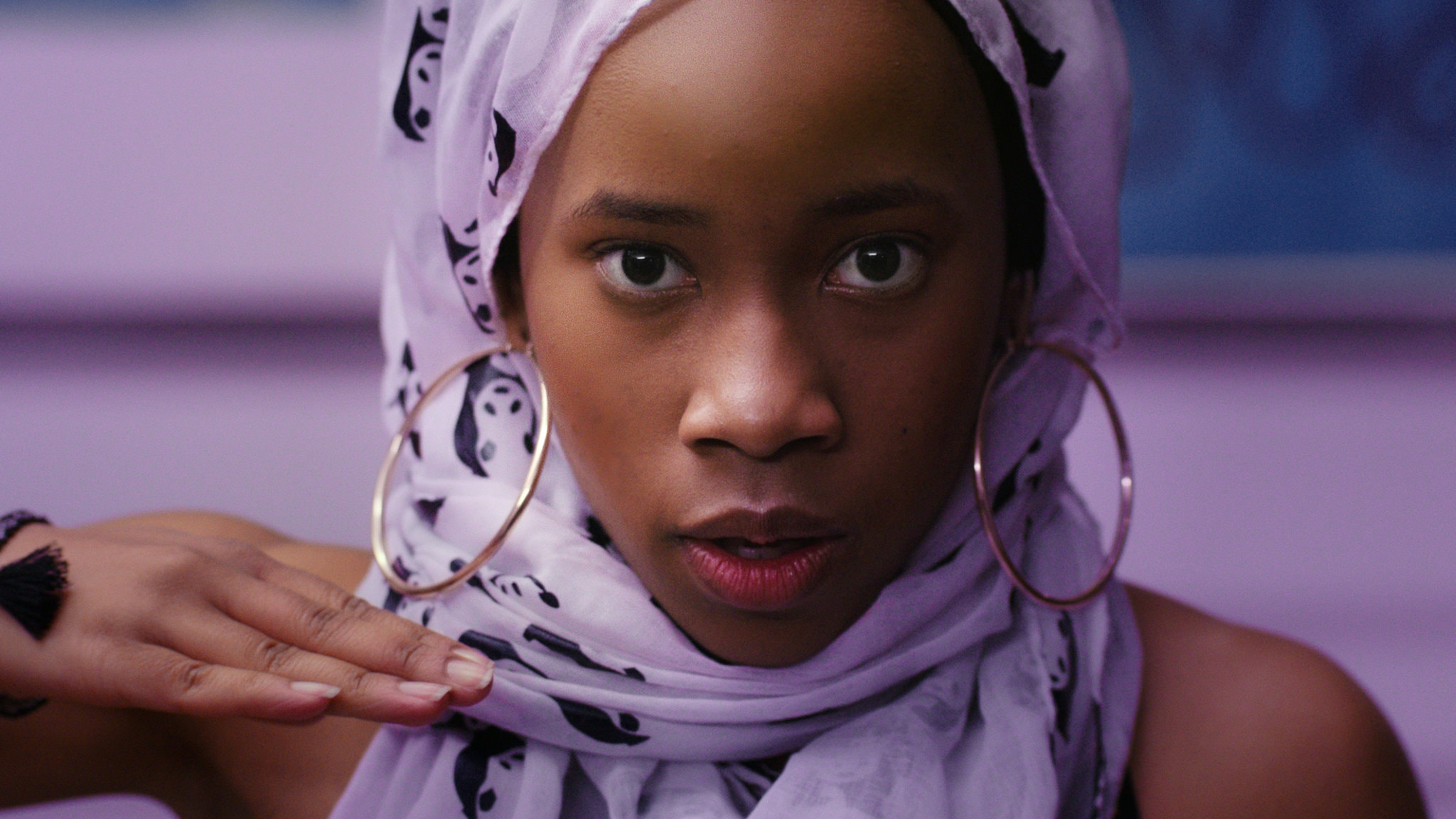Category
arts and culture, WebAbout This Project
Should I wear my hijab during dance routines? What are the rules of dating? What about my love of pepperoni? These are questions Summer Jennings, a carefree Black teenager, starts asking herself after her mother converts to Islam in Jinn, writer-director Nijla Mu’min’s first feature film.
Inspired by Mu’min’s own upbringing within a thriving Black Muslim community in the Bay Area, Jinn examines how identity is formed by religion, family, and relationships. Set against the backdrop of everyday high school experiences, the flick follows Summer as she explores who she is, deals with tension in her crew and anticipates getting into college.
“As I became a teenager, I started to be exposed to different ideas that seemed to be in direct conflict with my early beliefs,” says Mu’min. “I wanted to be able to negotiate and navigate all the different worlds that I was a part of.” That exploration informed her creation of Jinn.
When Mu’min premiered the movie at this year’s SXSW Festival in March, it won a Special Jury Recognition for Writing. Then in June, she received the Jury Award for Best Screenplay from the American Black Film Festival.
“We very rarely see a story about the coming of age of a young Black girl told in a way that is not framed around abuse or violence or something tragic,” says Simone Missick, who appears in Luke Cage and The Defenders and plays Summer’s mother. The film’s presentation of a different narrative about Black girls and Islam motivated Missick to sign on as an executive producer.
Zoe Renee, last seen in The Quad, stars as Summer. The actress says that Jinn gave her a new perspective on the nuances of religious ritual.
“It was my first time being in the masjid and seeing the people, smelling the smells,” she reflects. “It was life-changing for me because I was able to observe the religion in its purest form. I was able to see it in such a beautiful and soft light, and I think that’s very rare when we’re talking about Islam.”
Jinn arrives in select theaters on November 15 and will be available on demand November 16. Mu’min hopes the picture will resonate with many people, not just Black Muslims.
“I’m really proud I stuck with my story,” she says. “Often, people are surprised that a personal story is the one that will connect to a large audience, but we should always trust that instinct to tell our story.”


